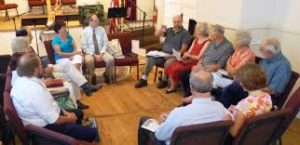“How could I be so stupid?” Maybe you’ve never asked yourself this question. But I have—lots of times. I’ll never forget the day that my perspective on Sunday School teaching changed forever. I had always been a good Sunday School teacher. I had shepherded my students. I had tried to ground them in the key doctrines of Scripture. I had tried to encourage them to live for Jesus, in church and out of church. But I had failed to develop apprentice teachers. I had sought to gather students in my classroom, rather than equip students to minister in other classrooms.

I was attending a LifeWay Sunday School training, when 2 Timothy 2:2 gripped my soul. “And what you have heard from me in the presence of many witnesses entrust to faithful men who will be able to teach others also.” The verse became my life verse. I determined that I would no longer evaluate myself based on the size of my class. I would evaluate myself based on the Christian leaders, especially the Christian teachers, who came out of my class.
We tend to grieve over the loss of students, even the students who leave our class to teach other classes. In some ways, that’s understandable. The world judges us by the number of students who sit in our classroom. But Christ judges us based on our impact on his kingdom. We should always be looking for that student who has the potential to teach. We should be seeking to multiply our ministry, as the Apostle Paul did, through the lives of others.
Prepared by Dr. Fred Creason
Leadership Strategist, Wyoming Southern Baptists



